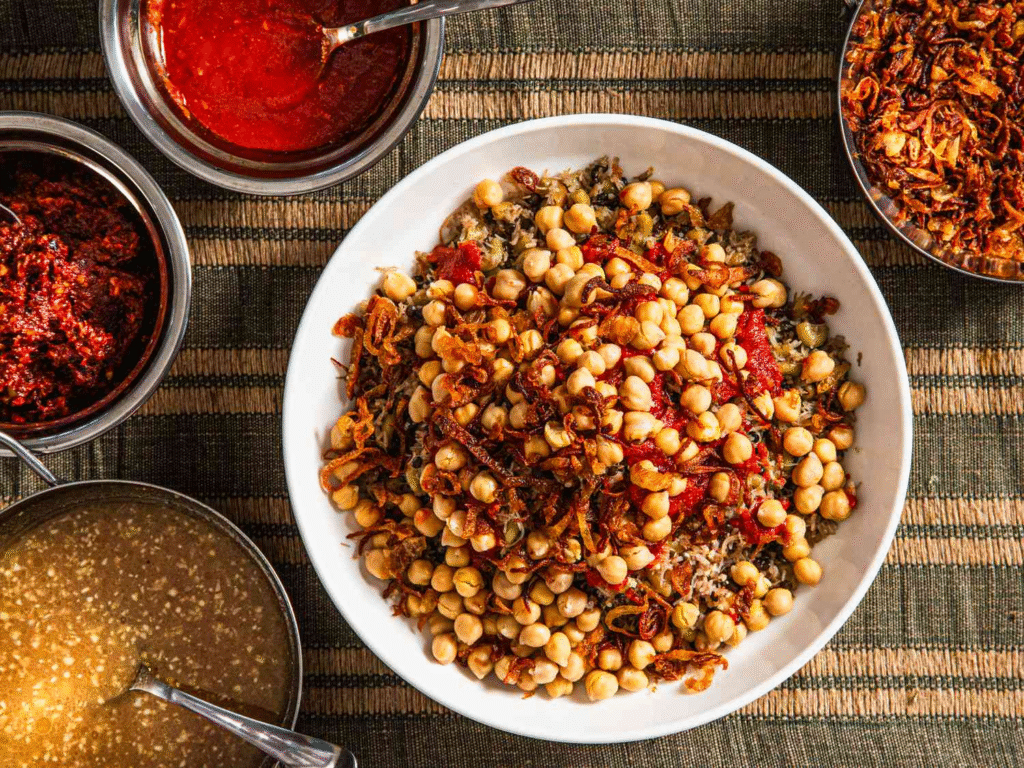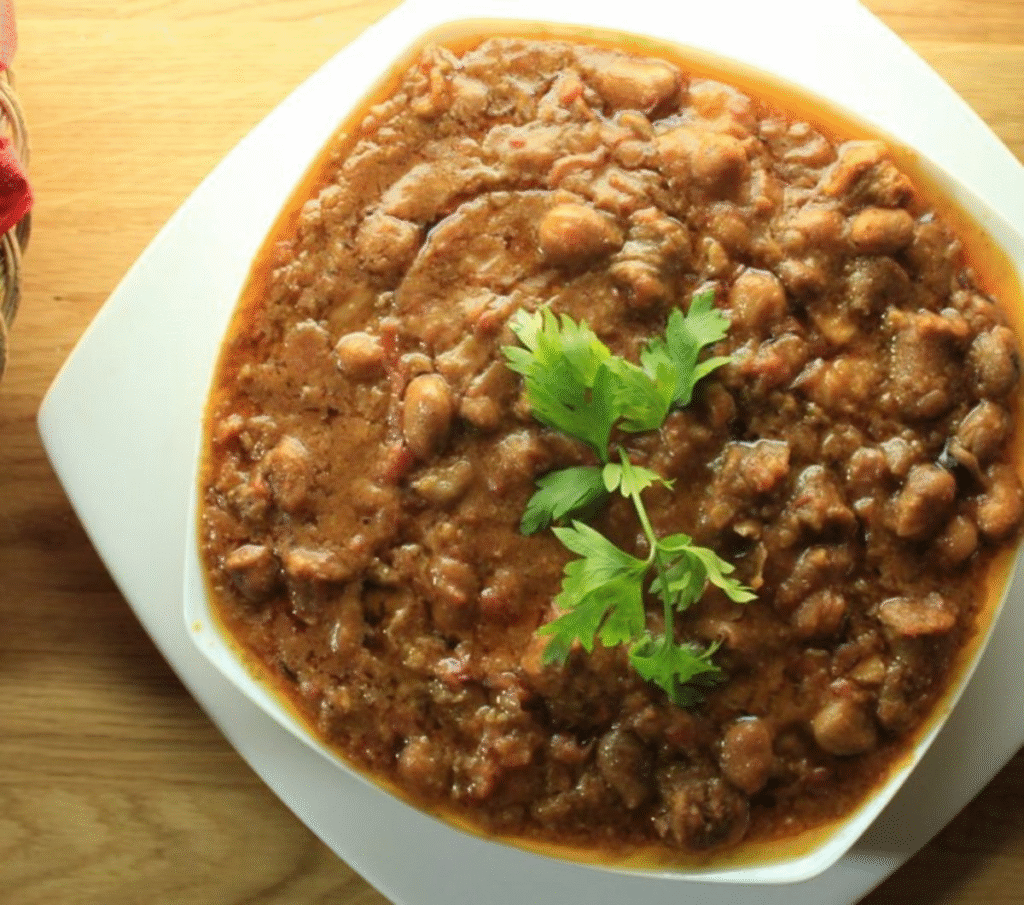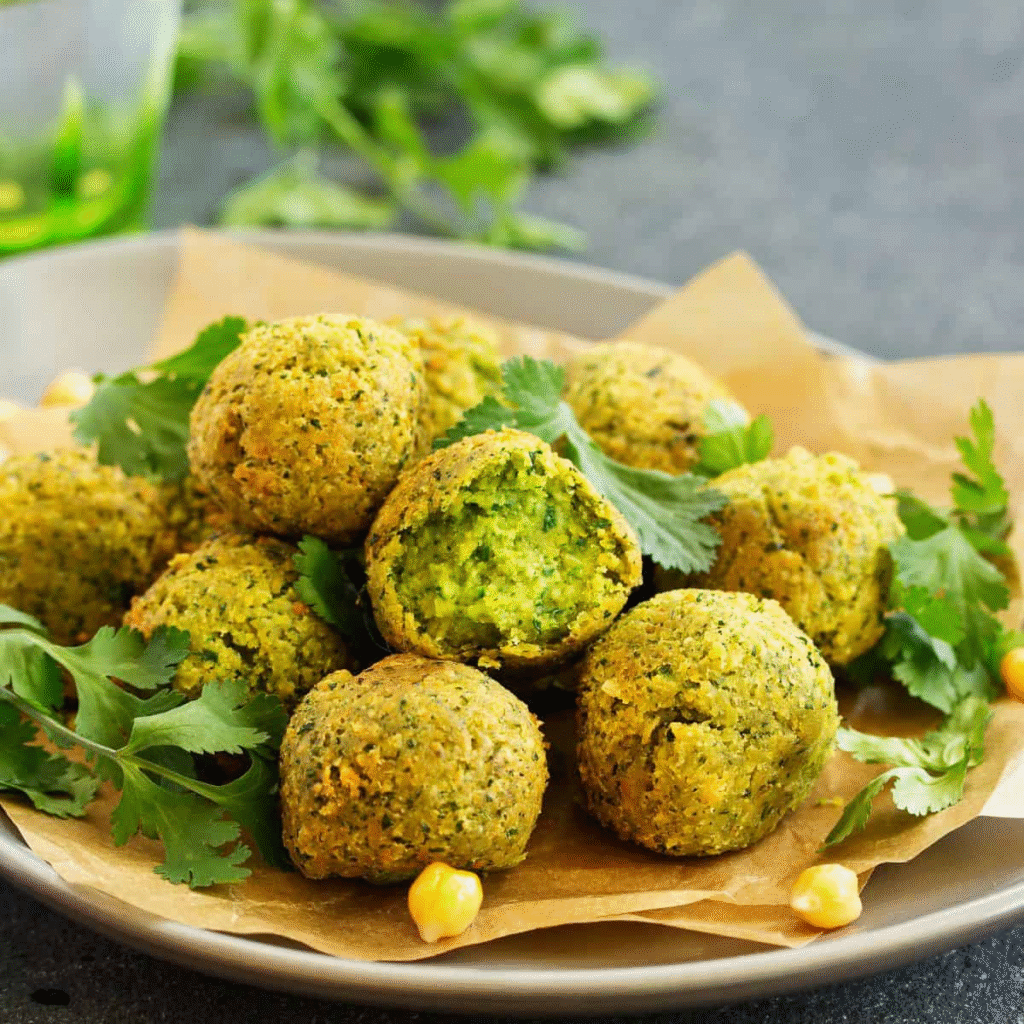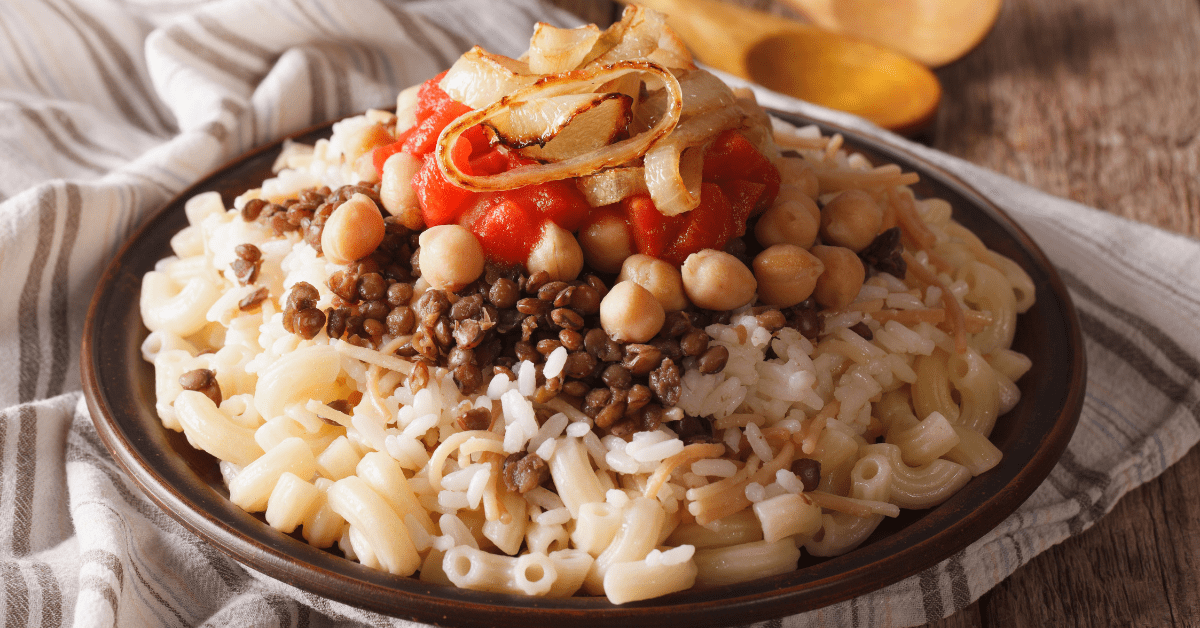
Introduction: Why Food Defines a Journey in Egypt
Egyptian cuisine travel:
When most travelers think of Egypt, the first images that come to mind are the mighty Pyramids of Giza, the Nile River, and the vibrant Red Sea resorts. Yet, beyond the iconic monuments and sunny beaches, one of the most authentic ways to experience Egypt is through its food.
Egyptian cuisine is a tapestry of flavors shaped by thousands of years of history, blending influences from the Middle East, North Africa, and the Mediterranean. Food is not only about nourishment here—it is about community, storytelling, and tradition. For visitors, meals in Egypt become a journey in themselves: tasting ancient recipes, exploring bustling markets, and sharing dishes with local families.
This article will explore the role of Egyptian cuisine in travel, from traditional meals in Hurghada to street snacks in Cairo, from sipping sweet hibiscus tea in Luxor to dining in the desert with Bedouins.
The Foundations of Egyptian Cuisine

Egyptian food is known for being hearty, flavorful, and often plant-based, though meats and fish are widely enjoyed too. Staples like beans, bread, and rice form the backbone of most meals, enriched by aromatic spices and fresh herbs.
Key elements include:
- Baladi bread – A whole wheat flatbread, central to every meal.
- Legumes – Beans, lentils, and chickpeas are everyday ingredients.
- Rice and grains – Paired with vegetables or meat.
- Vegetables – Tomatoes, onions, cucumbers, and eggplants appear in countless dishes.
- Spices – Cumin, coriander, cinnamon, and cardamom create depth and warmth.
This balance of simple, wholesome ingredients makes Egyptian food both comforting and surprising, appealing to travelers who want an authentic cultural immersion.
Signature Traditional Egyptian Dishes Every Traveler Should Try

Koshari – The National Dish
No Egyptian food travel experience is complete without trying Koshari. A layered dish of rice, lentils, pasta, and chickpeas, topped with crispy fried onions and a tangy tomato-vinegar sauce. Affordable and filling, Koshari is a favorite among both locals and visitors.
Ful Medames – A Breakfast Essential
Ful is a mashed fava bean dish seasoned with olive oil, lemon, and garlic. It is the heart of the Egyptian breakfast and often served with bread, cheese, and fresh vegetables. For many travelers, eating Ful in a small local café is the first step into Egyptian culinary culture.
Ta’ameya – Egyptian Falafel
Unlike Middle Eastern falafel made from chickpeas, Egyptian falafel (called Ta’ameya) is prepared with fava beans, giving it a greener color and a lighter texture. It’s a staple street snack in Egypt, often served with tahini and salad inside warm bread.
Molokhia – The Green Soup
Molokhia is made from finely chopped jute leaves, simmered into a garlicky broth. Though its texture is unique and sometimes unfamiliar for foreigners, it is deeply loved in Egyptian homes. It’s usually served with rice and chicken or rabbit.
Mahshi – Stuffed Vegetables
Bell peppers, zucchinis, eggplants, or grape leaves filled with a fragrant mixture of rice, herbs, and sometimes minced meat. Mahshi is especially popular during family gatherings and celebrations.
Grilled Meat and Kofta
For travelers seeking traditional flavors with smoky richness, skewers of lamb or chicken grilled over charcoal are a highlight. Kofta, spiced ground meat rolled into skewers, is a must-try, especially in coastal towns like Hurghada or Alexandria.
Street Snacks in Egypt: The Soul of Everyday Life

Why Street Food Matters
Street food is more than just a meal—it’s a way to witness the country’s energy, culture, and daily rhythms. For those exploring Cairo or Hurghada, tasting street snacks in Egypt is one of the best ways to connect with the locals.
Popular Street Snacks to Try
- Shawarma – Thinly sliced meat wrapped in bread with garlic sauce and pickles.
- Hawawshi – Baladi bread stuffed with spiced minced meat, baked until crispy.
- Sambousak – Small fried pastries filled with meat, cheese, or vegetables.
- Sweet treats – Basbousa (semolina cake soaked in syrup), Konafa (crispy shredded pastry with nuts or cream), and Baklava.
- Fresh juices – Sugarcane juice, mango, guava, and pomegranate juices are refreshing on a hot day.
For travelers, tasting these snacks is a quick and affordable way to savor authentic flavors.
Traditional Drinks in Egypt

Food culture in Egypt is also deeply tied to beverages. For travelers, sampling these drinks is as important as tasting the dishes.
- Karkadeh (Hibiscus tea) – Served hot or cold, ruby red, and both sweet and tart.
- Sahlab – A creamy winter drink made with milk, cinnamon, and nuts.
- Egyptian coffee – Strong and rich, often flavored with cardamom.
- Black tea – The national drink, enjoyed multiple times a day, usually very sweet.
- Fresh fruit juices – Widely available and always refreshing.
These drinks are not only delicious but also part of the rhythm of local life, from morning tea to evening gatherings.
Food on Tours and Excursions in Egypt

One of the most memorable parts of Egyptian food travel is enjoying meals during excursions. Whether travelers are taking a desert safari, sailing on a Nile cruise, or spending a day on the Red Sea, food is always an integral part of the experience.
Food on Nile Cruises
Buffet-style meals combine international favorites with traditional Egyptian dishes, allowing travelers to explore the cuisine in a comfortable setting. Dinners often include live cooking stations, with kofta grilled fresh on deck.
Bedouin Dinners in the Desert
During desert safaris in Hurghada or Sharm El-Sheikh, travelers are often treated to Bedouin-style meals under the stars. Freshly baked bread, grilled meat, rice, and sweet tea create an unforgettable cultural evening.
Seafood by the Red Sea
Hurghada and Marsa Alam are famous for their fresh fish and seafood. From grilled Red Sea fish to shrimp and calamari, dining by the sea is a highlight for travelers looking for traditional meals in Hurghada.
Egyptian Hospitality: Sharing Food and Culture
The Role of Food in Egyptian Society
Food in Egypt is never just about eating—it is about gathering. Egyptians are known for their generosity, and guests are always offered the best portions. For travelers, being invited to a local home is a true privilege and an insight into Egyptian hospitality.
Hospitality on the Road
Even in small villages or markets, strangers may offer tea or bread as a gesture of welcome. This tradition makes Egyptian food travel not only about flavors but also about human connection.
The Cultural Significance of Eating Together

Meals are often served in the center of the table for everyone to share. Eating with family and friends is a way of strengthening relationships. For visitors, it is a chance to experience how deeply food is woven into Egyptian culture.
Sharing a plate of Koshari at a busy downtown restaurant, sipping tea with Bedouins in the desert, or eating fish by the Red Sea—these experiences create lasting travel memories.
Sustainability and Food in Egyptian Tourism
As Egypt continues to attract millions of travelers, sustainability becomes crucial. Supporting local food vendors, avoiding waste, and choosing eco-friendly tours help preserve both cultural traditions and natural resources.
For example, when eating seafood, travelers are encouraged to choose restaurants that source responsibly to protect Red Sea ecosystems. Similarly, by buying street snacks from family-run stalls, visitors support local communities directly.
Practical Tips for Food Travelers in Egypt
- Be adventurous – Try new flavors, even if they look unfamiliar.
- Choose local eateries – Often, the best traditional meals are found in small family restaurants.
- Mind hygiene – Pick street food stands that are busy with locals.
- Learn key words – Simple phrases like “shukran” (thank you) make the food experience warmer.
- Respect customs – In conservative areas, avoid waste and dress modestly when dining out.
Conclusion: Egyptian Cuisine as the Flavor of Travel

Exploring Egypt is more than visiting temples or swimming in the Red Sea. It is also about discovering flavors passed down through generations, from the crunch of freshly fried Ta’ameya to the sweetness of Konafa, from sipping hibiscus tea in Luxor to enjoying traditional meals in Hurghada by the sea.
Egyptian food travel connects visitors not only to dishes but also to stories, traditions, and people. Food becomes a gateway to understanding the country’s culture, hospitality, and rhythm of life.
For every traveler, tasting Egyptian cuisine is an adventure—one that enriches the journey and lingers in memory long after the trip ends.







